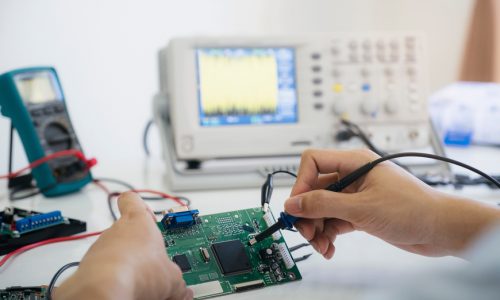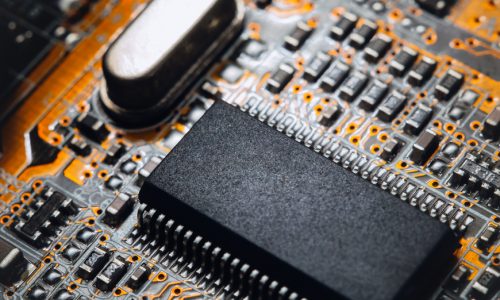Welcome to “Embedded Systems Challenges: Things You Must Know.” This comprehensive course is designed to provide you with a deep understanding of the challenges and concepts involved in embedded systems development. In the introduction and getting started section, you will be introduced to the course and the world of embedded systems. You will explore the differences between computing systems and embedded systems and gain insights into the unique challenges faced in the field. Additionally, you will learn about embedded systems-on-a-board (SoB) and system-on-a-chip (SoC), as well as the role of microcontrollers, processors, and CPUs in embedded systems.
The course covers the fundamental concepts of CISC (Complex Instruction Set Computing) and RISC (Reduced Instruction Set Computing) architectures. You will understand the characteristics and differences between these two architectures and their impact on embedded systems design and performance. Processor clock cycles play a crucial role in the execution of instructions, and in the Processor Clock Cycle section, you will learn about the fetch, decode, and execute steps involved in each cycle. Through examples, you will gain a clear understanding of how instructions are processed and executed in a processor.
Understanding different memory types is essential in embedded systems development, and the course explores various memory types. You will learn about RAM (Random Access Memory), ROM (Read-Only Memory), and NVRAM (Non-Volatile Random Access Memory), and their significance in storing and accessing data in embedded systems. Lastly, you will explore the differences between the Harvard architecture and the Von Neumann architecture. You will understand the characteristics and advantages of each architecture and their relevance in embedded systems design.
By the end of this course, you will have acquired a comprehensive understanding of embedded systems challenges, CISC and RISC architectures, processor clock cycles, memory types, and architectural considerations. Whether you are a student, a professional, or an enthusiast, this course will equip you with the knowledge and insights to tackle the complexities of embedded systems development. Join us on this exciting journey and unlock your potential to build innovative and efficient embedded systems.
What Will You Learn?
- The distinction between computing systems and embedded systems.
- The unique challenges involved in embedded systems development.
- The concept of embedded systems-on-a-board (SoB) and system-on-a-chip (SoC).
- The role and characteristics of microcontrollers, processors, and CPUs in embedded systems.
- The differences between CISC (Complex Instruction Set Computing) and RISC (Reduced Instruction Set Computing) architectures.
- The fetch, decode, and execute steps in a processor clock cycle and their impact on instruction execution.
- Different memory types, including RAM (Random Access Memory), ROM (Read-Only Memory), and NVRAM (Non-Volatile Random Access Memory).
- The significance of memory in storing and accessing data in embedded systems.
- The differences between the Harvard architecture and the Von Neumann architecture.
- The advantages and considerations of each architecture in embedded systems design.
- The fundamental concepts and principles necessary for successful embedded systems development.
- The ability to make informed decisions and choices when designing and implementing embedded systems.
- The knowledge and insights to overcome challenges and optimize performance in embedded systems.
Who Should Take The Course?
- Students studying electronics, computer science, or related fields who want to deepen their understanding of embedded systems.
- Engineers and professionals involved in embedded systems development who want to enhance their knowledge and skills.
- Hobbyists and enthusiasts interested in learning about the challenges and intricacies of embedded systems.
- Programmers and developers looking to expand their expertise in the field of embedded systems.
- Individuals considering a career in embedded systems engineering or related fields.
- Technical professionals who need to work with embedded systems in their current roles.
- Anyone interested in understanding the concepts and principles behind embedded systems and their challenges.
- Those seeking to explore and innovate in the field of embedded systems.
- Individuals who want to build a solid foundation in embedded systems for further learning and advanced projects.
- Enthusiasts who want to gain insights into the inner workings of microcontrollers, processors, and memory systems.
Course Features
- Lectures 13
- Quiz 0
- Duration 2 h
- Skill level All levels
- Language English
- Students 0
- Certificate Yes
- Assessments Self
Curriculum
- 6 Sections
- 13 Lessons
- 365 Days
- Introduction & Getting Started5
- CISC and RISC1
- Processor Clock Cycle2
- Memory Types3
- Harvard Architecture Vs Von Neoman Architecture1
- Premium Certificate & Transcript1




